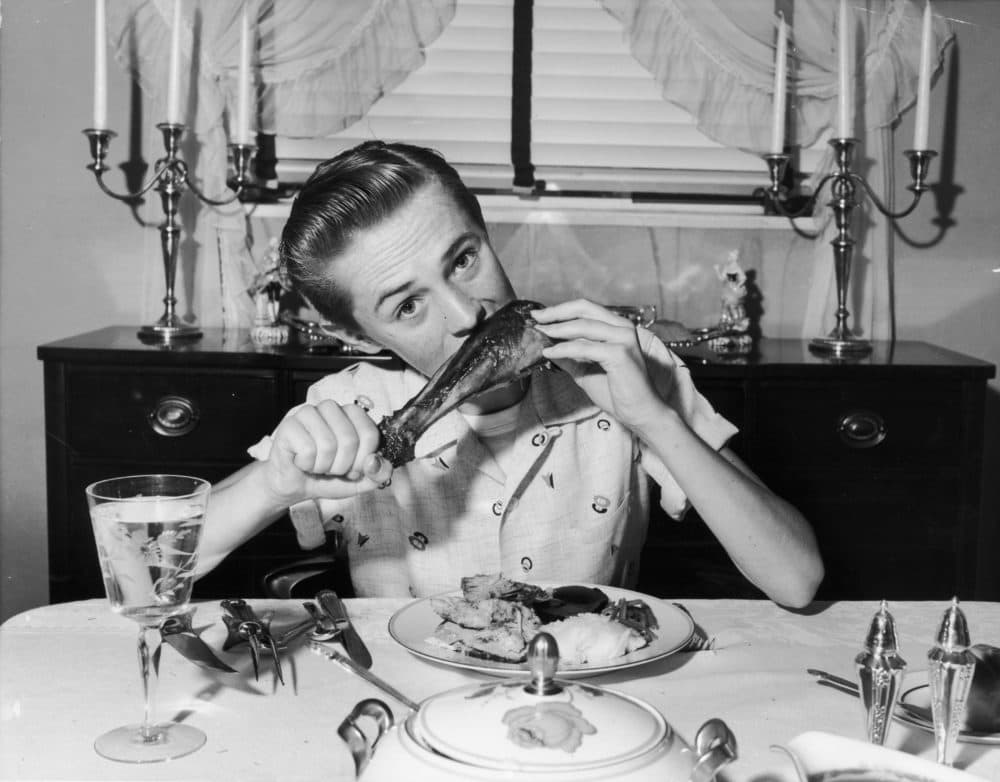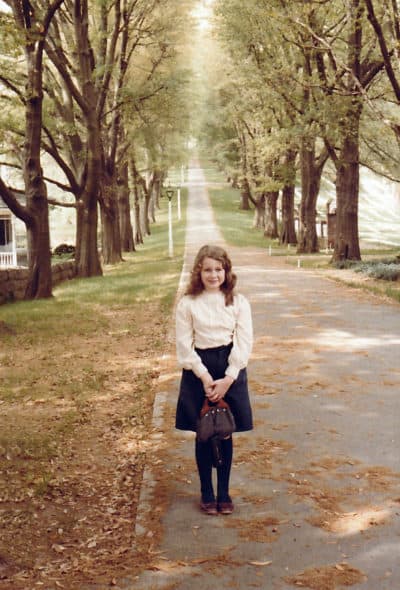Advertisement
Commentary
The Pandemic Is Giving Me The Thanksgiving Of My Dreams: No Turkey, No Small Talk

As a child, my Thanksgivings were far from conventional. The year after my mother left, my father attempted to host a traditional family Thanksgiving dinner to encourage a sense of normalcy that in truth, was long gone. Since we didn’t have any family, he invited neighbors to fill the chairs and contribute food. I remember staring across the table at the semi-circle of eager faces all split into wide smiles and eyes that betrayed their pity for me. The neighbors tried in vain to cheer the 10-year-old girl whose family had just splintered like the wishbone they plucked from the carcass of the turkey and cheerfully fought over.
The following year, we abandoned that approach and began the avant-garde ritual of having our holiday meal at a hotel buffet. When I tell people that I grew up eating Thanksgiving dinner at the Marriott, they always tilt their heads in sympathy and say something like, “Oh, that’s awful.”
But it wasn’t awful at the time. I got to sleep in, get dressed up and go to a glittering hotel with succulent, beautifully displayed food and eat whatever I wanted. I didn’t have to listen to my parents fight, be coddled by random adults or choke down foods I hated in the name of politeness. The hotel banquets became our new tradition and Thanksgiving became an elegant blip for me: a meal, like so many others, at a nice restaurant with just my father and me. My dad spent the rest of the day watching football.

When you’re a kid, holidays can feel like they are created for you. But as an adult, you realize that they are mostly constructed of compromise: compromise between husbands and wives, grown children and their aging parents, between families united by marriage but perhaps little else. This year, steadfast holiday traditions that have grown in families like mighty oaks will have to be pruned and in some cases, razed. Maybe that is what we need to let new traditions take root.
Sometime in my mid-20s, after I had moved up north to start my career, I began to long for the Thanksgivings I'd never had. Being able to fill the house with my own brand of warmth and curated beauty seemed like an attractive rite of passage into adulthood, a way to take control of my own narrative. When I got married, I assumed that obvious marker of maturity would be enough to warrant running my own holiday, but my husband wanted to be with his family and we had no room to host a large gathering, so we eschewed starting our own tradition and continued to join in theirs. I always secretly wished we could just stay home with our dogs and have our own intimate celebration, but it seemed that wouldn’t do.
Years later, in an act of mini-rebellion, I insisted on bringing the dogs to Thanksgiving dinner. One dog was quite old and had terrible, dementia-related anxiety. If she were left alone for more than an hour, we would find her hyperventilating and clawing at the doors. At the last minute, I was informed that an old family friend was coming over with her 5-year-old daughter. “The little girl is afraid of animals, so the dogs will have to stay outside,” I was told. I fumed and fretted, but in the end, stood firm on my decision to bring the dogs. As a result, my husband and I took shifts eating our plates of Thanksgiving dinner alone, outside in the cold drizzle, with my city dogs who cried and howled if they were left alone in the big yard for even five minutes.
Advertisement
Eight years into being a parent, I felt sure that I had earned the right to claim this one holiday for myself and my daughter.
When I became a mother at the age of 38, I imagined that my new societal rank would allow me to finally shed the Thanksgiving role of adult-child and slip into that of the budding matriarch, but I'd missed my chance. The first Thanksgiving after my daughter’s birth I was drowning in postpartum depression and couldn’t muster the strength to clean my house, let alone argue for holiday autonomy. Like so many new parents, we were hopelessly floundering to adjust to the monumental shift our lives had just undergone, so we showed up, bedraggled and sleep-deprived at the traditional family gathering with our 4-month-old baby.
Over the years, my husband’s tradition became, by default, my tradition. Last year, my now 9-year-old daughter, who is vegetarian, asked if we could have Thanksgiving at home with just the three of us. I was elated. “Seeing the turkey makes me sad,” she told me. I agreed. Together we imagined an idyllic turkey-free day full of mashed potatoes, Brussel sprouts, brownies and movie marathons. Eight years into being a parent, I felt sure that I had earned the right to claim this one holiday for myself and my daughter. But when I told my mother-in-law that we wanted to “skip” the family gathering, her face fell. Predictably, we ended up logging Family Thanksgiving #18 into the books. My daughter sat at the festive table with a face like thunder.
This year, my husband’s family, like so many others, decided to cancel Thanksgiving due to COVID-19. They made the announcement with such grave faces that I had to temper the little spark of joy I felt ignite in me. For them, uniting loved ones and spending the day together is important, a value that was never effectively passed on to me as a child, but one that I am hoping to instill in my daughter.
Nevertheless, after 18 Thanksgivings, the thought of finally having this holiday on my own terms, if only for one year, has made me euphoric. One year with no turkey, no strangers, no small talk and no compromises.
